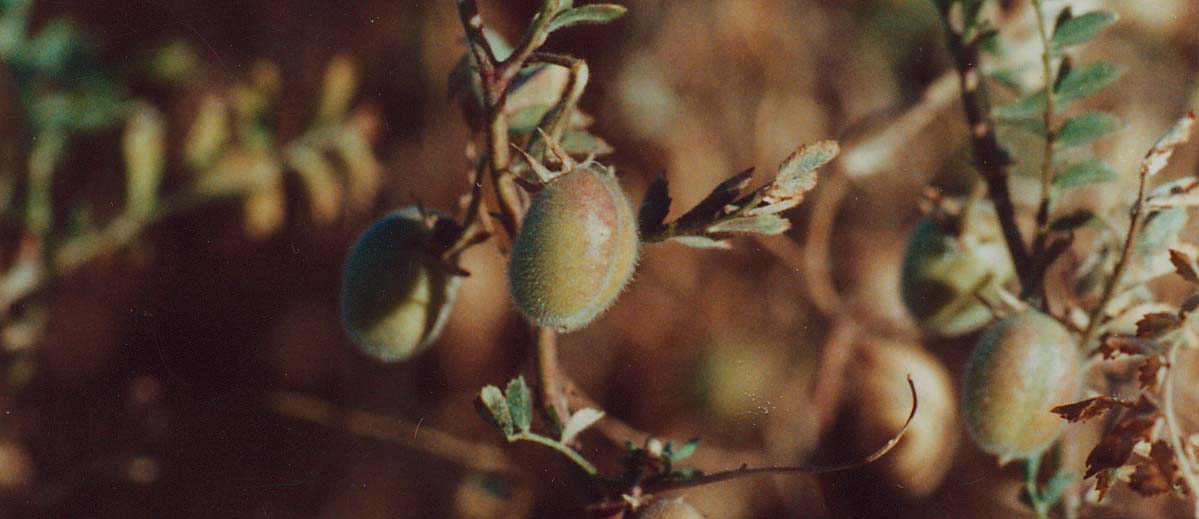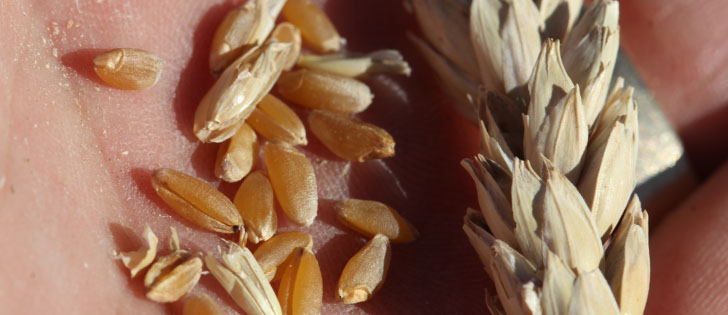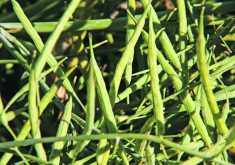Maybe you’ve had a busy harvest or maybe you didn’t have much of a crop to harvest. In either case, you are putting your combine away for the winter and it still needs tender loving care, whether it’s a 20-year-old machine or a two-year-old with all the gadgets.
I’ve seen engine bearings in a tractor and a combine that were perfectly smooth but had furrows that looked as though a little mouse got in there and made a tunnel.
Read Also

Crop quality looks good this year across Prairies
Crop quality looks real good this year, with the exception of durum.
An oil company rep looked at them once and said he had seen it before when engines were parked over winter with dirty oil. It didn’t show up until there was an engine failure because few engines were opened up to check for this. By then the evidence was destroyed.
I once asked a bearing rep why so many nearly new sealed bearings fail in the first week of harvest. He said that he noticed while processing them for warranty returns that nearly all of them had half of their races corroded and the other half were perfectly clean. This is from parking a hot combine. The grease runs to the bottom of the bearing, leaving the top exposed to the atmosphere and susceptible to corrosion. Prevent this by turning the combine over a few times after it is cold.
Bring your batteries in for storage or at least clean them off. The dirt and chaff will carry enough current to run the battery down, which makes it vulnerable to freezing or premature failure of the plates.
Air conditioning shops are busy just before harvest charging combine systems. They haven’t failed; they just need charging.
This could be prevented by removing the pump from its mounts and setting it on the pulley end so the oil in the system can keep the seal moist. Put a sign in the cab reminding operators not to start the combine without putting the pump back on.
Owners of older machines, especially those bought secondhand after being parked outside at a dealership, will often have trouble with the variable speed belts.
The grease on the shaft where the variable speed pulley slides on gets so thick that the pulley won’t slide anymore. The belt snaps when the pulley breaks loose. This can be fixed by cleaning up all variable speed drives and applying grease.
Be careful when washing a combine with a high pressure washer because it’s easy to get water contamination past the seals on the bearings. As well, some washers are powerful enough to take the paint right off the body of the machine.
I recommend tilting combines on the driveway edge both ways and washing out the augers on the bottom of the shoe and the hopper.
Why not get your combine ready for next season this fall?
You can sometimes tell when a bearing is about to fail by a noise such as a rumble, or belts start getting jumpy.
A vibration analyzer can show in minutes whether you have a bad bearing, how bad it is and which one it is. I know it is an expensive machine, but I have used them and they work.
Fill the fuel tank to prevent condensation and change the coolant if it is more than two years old.
It might be a good idea to reverse the tires if the combine spends a lot of time on the road. That makes them quieter and they don’t wear as fast.
Bring the header down to rest on the stops. Tighten the wheel bolts. New bolts must be tightened every hour for the first day in operation.
Your winter will be better if you know in the back of your mind that harvest is only a twist of the key away.
Henry Guenter is a former service manager for Massey Ferguson. Contact:















